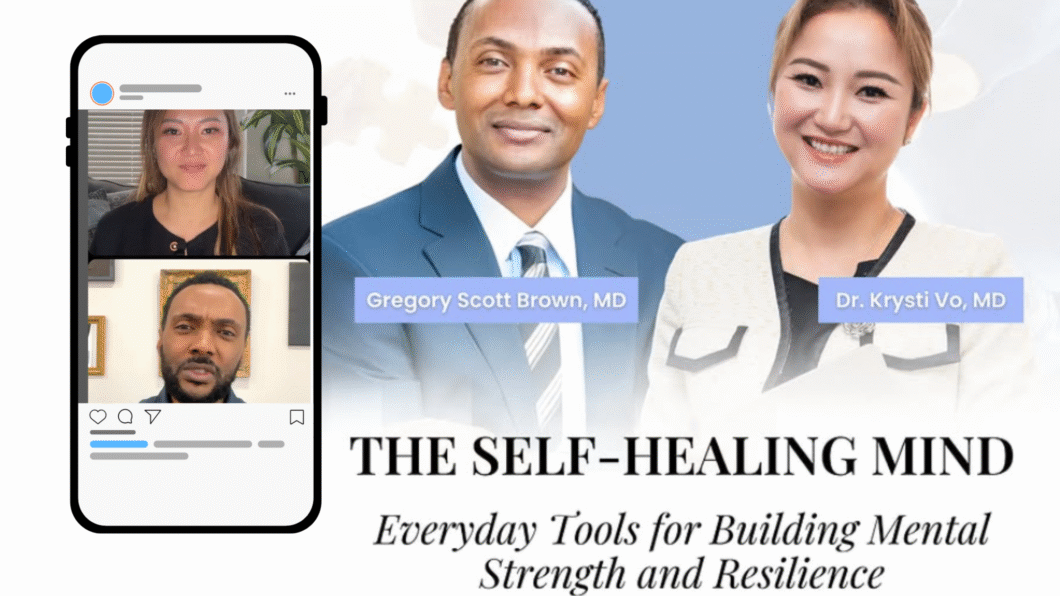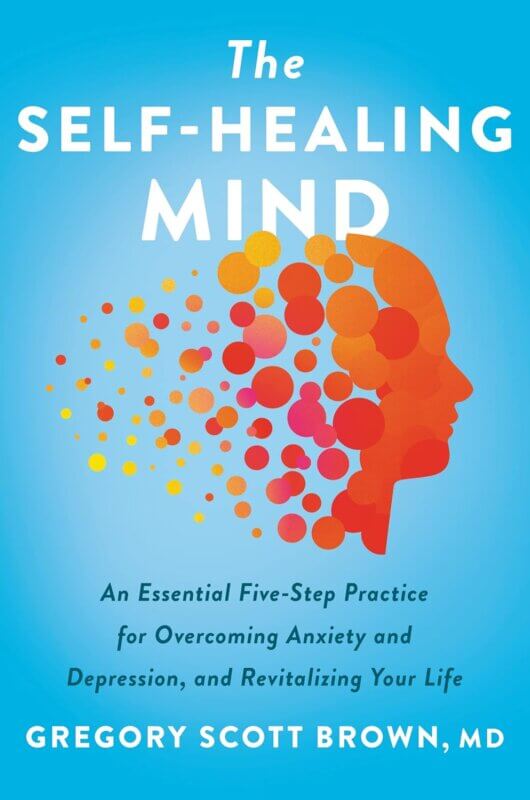TL;DR
Men face unique pressures to hide their stress, often resulting in high rates of burnout and isolation. To combat this silent crisis, psychiatrist Dr. Gregory Scott Brown proposes five evidence-based self-care pillars—Sleep, Movement, Breathwork, Spirituality, and Nutrition.
Instead of attempting overwhelming life overhauls, Dr. Krysti Vo recommends the YouHabits “Low Effort, High Impact” strategy to build sustainable resilience.
If you are currently in crisis, please know you are not alone; call 988 (US) immediately for support.
We are facing a quiet crisis. For generations, men have been encouraged to handle stress in isolation, often at the expense of their well-being.
In a recent Instagram Live event, Dr. Krysti Vo sat down with Dr. Gregory Scott Brown, a board-certified psychiatrist and author of The Self-Healing Mind. Their conversation moved away from old stereotypes and focused on the science of self-care, the reality of loneliness, and practical, manageable habits.
As Dr. Brown states, “We’re all thinking about mental health, but we’re not talking about it enough.” This silence often prevents men from seeking the help they need before they reach a breaking point.
The Isolation Trap: Why Men Drift Apart
One of the most critical insights Dr. Brown shared is a troubling trend he sees in his practice: as men age, they tend to isolate. While women often maintain strong, communicative social webs well into adulthood, men frequently pull away from the community-oriented activities that once grounded them.
This isolation creates an echo chamber where stress accumulates without release. When men do gather, the conversation often remains at the “surface level”—sports, work, or news—missing the opportunity to dive deeper into how they are actually navigating life.
This silence has consequences. The United States is currently facing a loneliness epidemic, and the statistics regarding men are alarming. Men account for nearly 79% of suicide deaths in the US. Staying silent is a major risk factor. As Dr. Brown candidly stated, “The greatest risk lies in suffering in silence.”
Recognizing Signs of Burnout and Depression in Men
Depression in men often manifests differently than the typical sadness or crying we expect. Dr. Brown points out that men frequently “mask” their symptoms. Waiting for a man to say “I feel sad” creates a risk of missing the warning signs entirely.
In men, burnout and depression often appear as irritability and anger. A shorter fuse, a sudden increase in frustration, or snapping at loved ones can be the primary indicator of internal struggle. Dr. Vo also highlighted indecisiveness as a key symptom—a sudden difficulty making simple decisions or a desire to withdraw from work responsibilities.
Men are also more likely to engage in “numbing” behaviors. This might look like an increase in alcohol consumption, working excessive hours to avoid being alone with one’s thoughts, or engaging in other harmful coping strategies. These behaviors are often attempts to self-medicate emotional pain that is otherwise unaddressed.
The Science of Self-Care: Dr. Brown’s 5 Pillars
Dr. Brown’s book, The Self-Healing Mind, emphasizes a holistic approach. He argues that while we cannot always choose our circumstances, we can choose our tools.
He outlines five evidence-based pillars of self-care. These are essential requirements for a healthy brain:
-
Sleep – The foundation of emotional regulation and recovery.
-
Movement – Exercise helps process stress hormones out of the body.
-
Breathwork – Dr. Vo emphasizes this heavily. Breathwork is a science-based tool that can regulate the nervous system immediately.
-
Spirituality – Connecting to a purpose, nature, or community larger than oneself.
-
Nutrition – Fueling the gut-brain connection.
The YouHabits Strategy: Low Effort, High Impact Self-Care
Knowing what to do is easy; actually doing it is where most people fail. Men often approach self-care with an “all or nothing” mentality—they decide to fix their sleep, diet, and exercise routine all on Monday morning. By Wednesday, they feel overwhelmed and quit.
Dr. Krysti Vo, creator of the YouHabits methodology, suggests a radically different approach. She advises prioritizing sustainability over intensity.
She advocates for a “Low Effort, High Impact” strategy. The goal is to find the smallest possible action that yields a positive result. Instead of committing to a new social life, simply reach out to one friend. Instead of joining a gym, just go for a walk.
Dr. Brown suggests using the “After Test” to guide your choices. Pay attention to how you feel after an activity. Do you feel 5% lighter after a walk? Do you feel calmer after breathing exercises? If the answer is yes, that is your data point. Do more of that. If a popular habit like journaling fails to help you (Dr. Brown admitted it doesn’t work for him), drop it. Find what works for your specific brain.
Ready to Build a Resilient Mind?
Understanding the science is the first step. Taking action is the second. You do not have to do this alone, and you do not have to do it all at once.
Master Your Habits with YouHabits
If you are tired of the start-stop cycle of self-improvement, our YouHabits Course is designed for you. We help you build routines that stick without the burnout.
Deepen Your Knowledge
We highly recommend picking up a copy of “The Self-Healing Mind” by Dr. Gregory Scott Brown for a complete guide to evidence-based self-care.
Stay Connected
Don’t miss our next live conversation. Follow Vo.Care on Instagram for more expert insights and community discussions.


